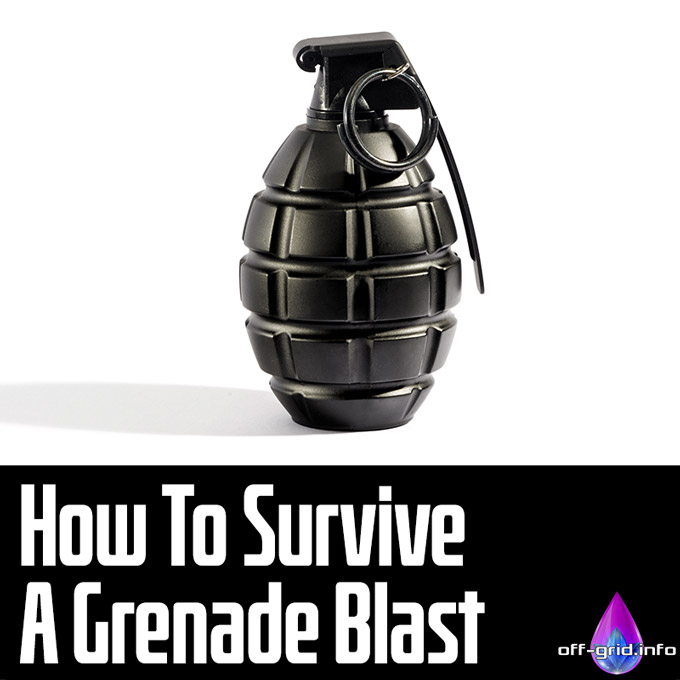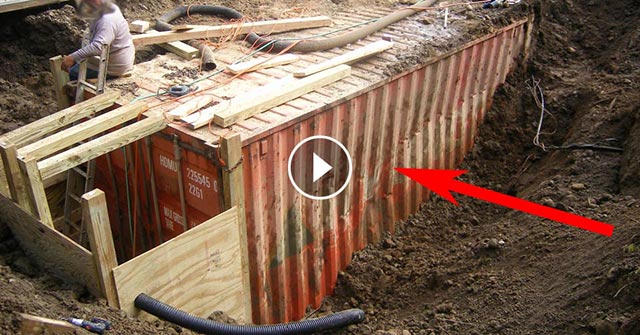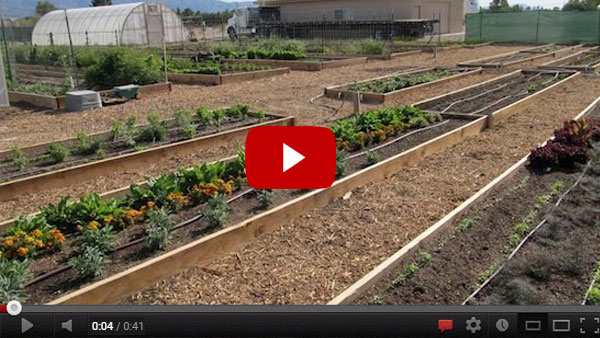Click Here To Join Our Telegram Channel for FREE daily tutorials!

How To Survive A Grenade Blast. Photo – Adobe Stock (under license)
In this interesting video, YouTubers Mark Rober and BackyardScientist teamed up to answer these simple questions: Are grenades deadlier on land or under water? And what can you do to maximize your chances of survival?

Grenades are potentially deadly explosive devices that are typically off-limits to anyone except military personnel. They are designed to fit the hand and facilitate being held and thrown. Typical grenades are activated by pulling a pin, which will trigger the explosion around 3 seconds later – so the user has time to throw it.
When the explosion occurs on land or in the air, the metal shell shatters and pieces fly outwards at very high velocity. Since there is minimal drag in air, there is hardly any resistance to the flying debris. In this scenario your best option is to take cover behind something solid, fast. The more solid the better but anything is better than nothing. Your next best option is to minimize the surface area of the body exposed to the blast, protecting vital areas as much as possible. With as much swiftness as possible, lie down with your feet pointing towards the blast. At 5 meters distance, your chances of avoiding a shrapnel impact are around 99% – very good.
If you are underwater however, everything changes. The drag from the water is so high that at 5 meters, all the pieces of shell would be slowed to a halt. However there is a new danger – the shockwave. This causes little effect to “solid” parts of the body however the lungs, being filled with air, will be compressed brutally, which can potentially be fatal – and the grenade blast at the same distance would be far more dangerous. Your chances of survival drop dramatically and your best possible option would be to get out of the water before the blast hits, if you can. Even getting your upper body out of the water will likely save you.
Note however that jumping into water to avoid an open air blast would be a very good idea – if you can move quickly enough.
Ok, here’s the video:


This Crazy Off Grid Device Literally Makes Drinkable Water From Fresh Air:
According to NASA, the U.S. is expecting a 100-YEAR LONG MEGADROUGHT.
It's already begun. Ask the farmers in California. They know.
Every survivalist knows that water is of critical importance. You NEED an independent water source that you can count on!
As an interesting "survival rehearsal" - imagine that you turned the tap on right now and nothing came out. How long would you last?
But what if there was another water source literally hidden in plain sight. That's right, I'm talking about the atmosphere!
The amazing thing about getting water from the natural moisture in the air... is that it is ALWAYS available.
This gives you real water security!
Learn more about how to tap into "Nature's secret water reservoir" and stay hydrated when TSHTF!
Watch the video:
😳 What Tinnitus Does To Your Brain Cells (And How To Stop It)
After 47 years of studies and countless brain scans done on more than 2,400 tinnitus patients, scientists at the MIT Institute found that in a shocking 96% of cases, tinnitus was actually shrinking their brain cells.
As it turns out, tinnitus and brain health are strongly linked.
Even more interesting: The reason why top army officials are not deaf after decades of hearing machine guns, bombs going off and helicopter noises…
Is because they are using something called "the wire method", a simple protocol inspired by a classified surgery on deaf people from the 1950s...
Most People Don't Have The Guts To Try This:
An amazing discovery in an abandoned house in Austin, Texas: A lost book of amazing survival knowledge, believed to have been long vanished to history, has been found in a dusty drawer in the house which belonged to a guy named Claude Davis.
Remember... back in those days, there was no electricity... no refrigerators... no law enforcement... and certainly no grocery store or supermarkets... Some of these exceptional skills are hundreds of years of old and they were learned the hard way by the early pioneers.
>> Click here to find out about them now
We've lost to history so much survival knowledge that we've become clueless compared to what our great grandfathers did or built on a daily basis to sustain their families.
Neighbors said that for the last couple of years Claude has tried to unearth and learn the forgotten ways of our great-grandparents and claimed to have found a secret of gargantuan proportions. A secret that he is about to reveal together with 3 old teachings that will change everything you think you know about preparedness:
>> Click Here To Watch The Video <<
What REALLY Happens When You Bury a Shipping Container? (Hint: It's A Bit Crazy...)
Shipping containers are all the rage - but if you are thinking about buying one, you MUST watch this video first:
Do not, I repeat do NOT do what these lunatics did! Can you spot the "fatal mistake" they made?
There's a general belief that if you bury a shipping container you can create an awesome root cellar / storm shelter / survival bunker.
But is a shipping container strong enough to handle the pressure?
Watch the video to see what happens:
What Really Happens When You Bury a Shipping Container? (Click To Watch Video)

I Can't Help Showing This Off:
If you haven't heard of Claude Davis yet do yourself a huge favor and watch this video.
One of the smartest guys I ever had the pleasure of meeting, Claude set-up a unique prepping system that changed his life forever.
I already tried it myself and let me tell... you I was completely blown away... His surprising tactics could make your life easier and give you the peace of mind you deserve.
Don't just take my word for it... watch his short video and decide for yourself.
>> Click Here To Watch The Video <<

More Off-Grid And Survival Resources:












